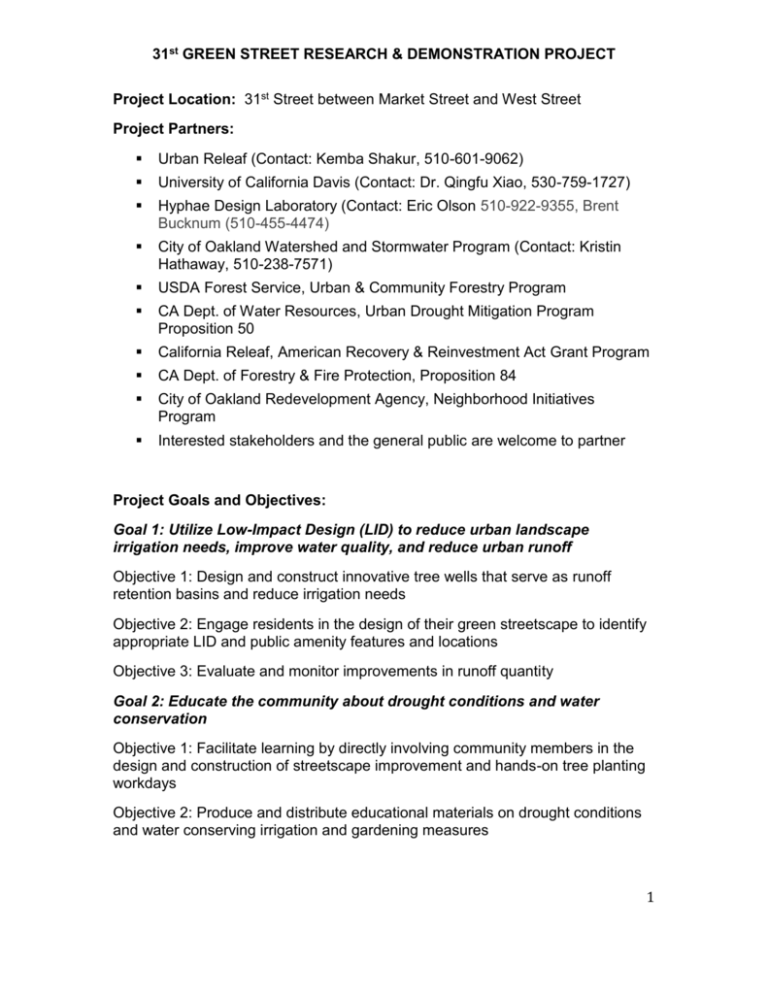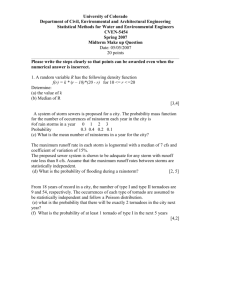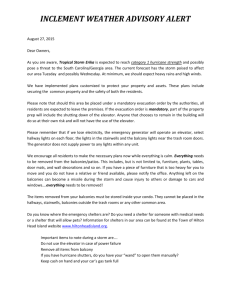Download: Full 31st Green St. project description
advertisement

31st GREEN STREET RESEARCH & DEMONSTRATION PROJECT Project Location: 31st Street between Market Street and West Street Project Partners: Urban Releaf (Contact: Kemba Shakur, 510-601-9062) University of California Davis (Contact: Dr. Qingfu Xiao, 530-759-1727) Hyphae Design Laboratory (Contact: Eric Olson 510-922-9355, Brent Bucknum (510-455-4474) City of Oakland Watershed and Stormwater Program (Contact: Kristin Hathaway, 510-238-7571) USDA Forest Service, Urban & Community Forestry Program CA Dept. of Water Resources, Urban Drought Mitigation Program Proposition 50 California Releaf, American Recovery & Reinvestment Act Grant Program CA Dept. of Forestry & Fire Protection, Proposition 84 City of Oakland Redevelopment Agency, Neighborhood Initiatives Program Interested stakeholders and the general public are welcome to partner Project Goals and Objectives: Goal 1: Utilize Low-Impact Design (LID) to reduce urban landscape irrigation needs, improve water quality, and reduce urban runoff Objective 1: Design and construct innovative tree wells that serve as runoff retention basins and reduce irrigation needs Objective 2: Engage residents in the design of their green streetscape to identify appropriate LID and public amenity features and locations Objective 3: Evaluate and monitor improvements in runoff quantity Goal 2: Educate the community about drought conditions and water conservation Objective 1: Facilitate learning by directly involving community members in the design and construction of streetscape improvement and hands-on tree planting workdays Objective 2: Produce and distribute educational materials on drought conditions and water conserving irrigation and gardening measures 1 31st GREEN STREET RESEARCH & DEMONSTRATION PROJECT Project Summary: With recent development in Low-Impact Design (LID), the Green Street Demonstration Project engages residents in the design and construction of a green streetscape on 31st Street between Market and West. In partnership with UC Davis Scientist Qingfu Xiao, government agencies and local organizations, the project will design innovative tree wells and other LID features to reduce potable water needs for urban landscape irrigation, reduce storm water runoff, and improve water quality, thereby educating residents through direct involvement about drought conditions in California and storm water pollution prevention. The project builds on the momentum of our 12-year reforestation effort as well as the Ettie Street Watershed Research & Evaluation Project that established the role of trees in improving water and air quality, carbon sequestration, and neighborhood beautification. Timeline and Activities: Baseline and Prototype Development (through September 2012) Design tree wells to capture storm water to support vegetation growth, slow down storm water runoff, and filters nonpoint source pollution from entering the storm drain. Evaluate alternative designs to determine tree well shape, dimension and other critical factors to maximize water storage capacity, structural stability, affordability and ease of implementation and maintenance, and acceptance by individual property owners. Work with City of Oakland Public Works Agency to obtain permits and streetscape design parameters and limitations Establish evaluation protocols and adopt indicators to monitor performance, to include collecting data on baseline water use for tree irrigation, installing flow meters at two storm drain inlets on 31st Street and adjacent (control site) and monitoring baseline storm water input Outreach and Education (throughout May 2013) Produce and distribute educational materials Contact and build relationships with residents and local community organizations and businesses through door-to-door visits, presentations, and other methods to survey and generate interest Organize water conservation workshops to educate residents and local community about California’s drought conditions, water conserving landscaping techniques, and storm water pollution prevention 2 31st GREEN STREET RESEARCH & DEMONSTRATION PROJECT Organize streetscape design charrettes for residents and other stakeholders to determine appropriate LID and interpretive features and locations Finalize design with residents and other community stakeholders with the help of a landscape architect/urban planner Construction (October 2011 – May 2013) Hire and train local youth and residents in tree planting and construction to lead workday crews including system set-up, performance evaluation Organize construction and planting workdays Conduct additional tree planting events with the community Evaluation (Ongoing/Winter 2011 – Fall 2014) Collect data from rain events and flow meters installed As-built appraisal Organize landscape maintenance workdays incorporating water conserving irrigation techniques, early tree care and long term maintenance, and storm drain monitoring/clean up Recruit residents to adopt maintenance and monitoring tasks 3







